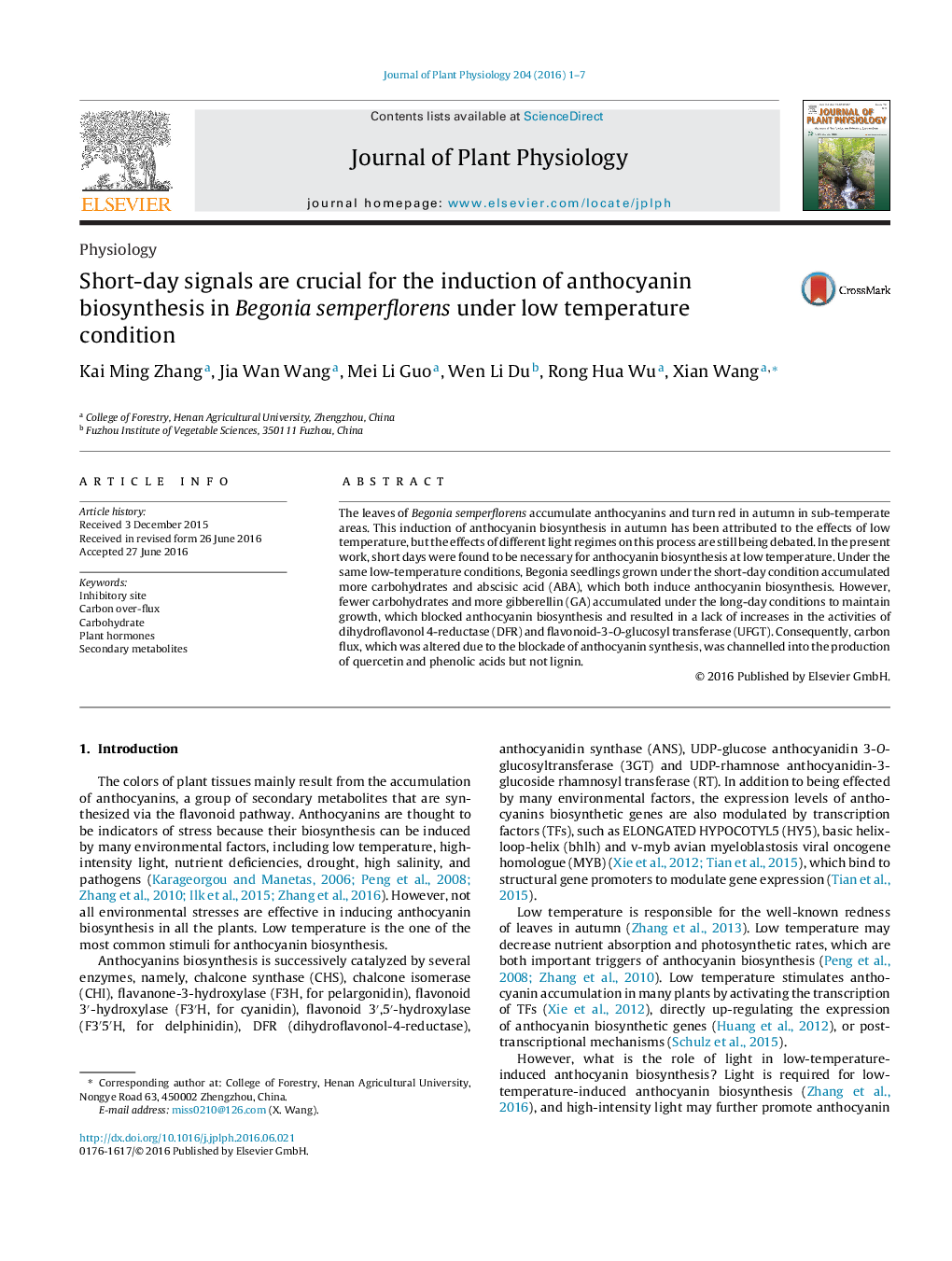| کد مقاله | کد نشریه | سال انتشار | مقاله انگلیسی | نسخه تمام متن |
|---|---|---|---|---|
| 2055397 | 1543874 | 2016 | 7 صفحه PDF | دانلود رایگان |

The leaves of Begonia semperflorens accumulate anthocyanins and turn red in autumn in sub-temperate areas. This induction of anthocyanin biosynthesis in autumn has been attributed to the effects of low temperature, but the effects of different light regimes on this process are still being debated. In the present work, short days were found to be necessary for anthocyanin biosynthesis at low temperature. Under the same low-temperature conditions, Begonia seedlings grown under the short-day condition accumulated more carbohydrates and abscisic acid (ABA), which both induce anthocyanin biosynthesis. However, fewer carbohydrates and more gibberellin (GA) accumulated under the long-day conditions to maintain growth, which blocked anthocyanin biosynthesis and resulted in a lack of increases in the activities of dihydroflavonol 4-reductase (DFR) and flavonoid-3-O-glucosyl transferase (UFGT). Consequently, carbon flux, which was altered due to the blockade of anthocyanin synthesis, was channelled into the production of quercetin and phenolic acids but not lignin.
Journal: Journal of Plant Physiology - Volume 204, 1 October 2016, Pages 1–7